Bocuse d'or Social Commitment Award
- Introduction
- Jury
- Projects
The Bocuse d’Or Social Commitment Award will be presented to a team taking part in the Bocuse d’Or. It aims to reward their social involvement in areas related to food and catering:
- food aid, distribution of meals,
- food education, training,
- sustainable development (combatting waste, responsible agriculture, preserving resources, etc).
This prize is presented jointly by GL events Exhibitions Operations and the Bocuse d’Or Winners association. It will be awarded by a jury composed of internationally renowned personalities who are recognised for their commitment and expertise in these fields.
Bocuse d'Or Social Commitment Award partner

For 35 years, Green Care Professional sustainable cleaners have been ensuring flawless and responsible hygienic conditions on a daily basis for foodservice professionals. Our innovative, high-performance hygiene solutions accompany the prestigious Bocuse d'Or culinary competition, supporting candidates and chefs in their environmental initiatives.
Jury composé de personnalités internationales reconnues pour leur engagement et leur expertise sur ces sujets :
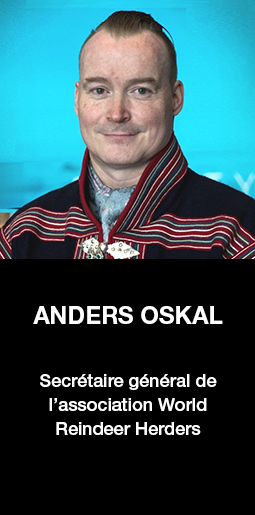
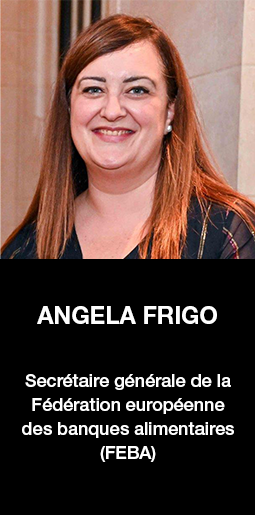
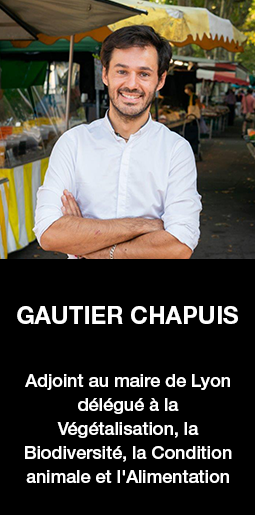
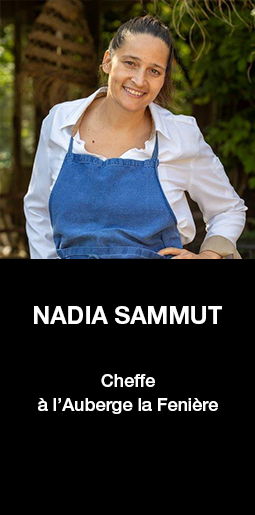
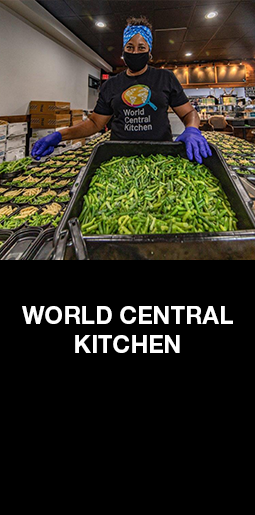
Jury composed of internationally renowned personalities who are recognised for their commitment and expertise in these fields:
- Gautier Chapuis
- Angela Frigo
- Anders Oskal
- Nadia Sammut
- World Central Kitchen
Gautier Chapuis, a water and environmental science engineer, is a Lyon-based politician committed to ecological and climate-change-related themes. Active in the climate movement in the Lyon area and a member of an environmental non-profit, he decided to go into politics and fight for better urban air quality.
In 2020, he was elected as council member for the city of Lyon and was assigned to work on local food and food safety issues. This was a challenge, since the new delegation found itself confronted with some huge stakes: problems with relocating food, development of an ethical food system, particularly in cafeterias and day care centres, development of urban agriculture, establishment of a right to food. With just one farmer still present in Lyon, it was a formidable challenge, but one that deserved particular attention since, as he sees it, food is a concrete path to emancipation and a unifying factor between people everywhere.
The chefs of the world are unquestionably the ambassadors of their own story, of their heritage, and these days they are the heralds of a new way of cooking, one that is healthier and more local, a cuisine that restores meaning. Today, those men and women are ready to write a new recipe, one that changes our plates and our lives!
Angela Frigo originally worked as an international liaison agent for the Italian structure Fondazione Banco Alimentare Onlus.
Since 2010, she has been working within the European Union in the sectors of food, agriculture and social issues. Angela Frigo is now secretary general of the European Food Banks Federation (FEBA), a non-profit organisation that works in partnership with 24 full members of the EU and 5 associate members.
Her tasks include managing the organisation and promoting FEBA’s key mission and values; she is a central point person and supports the development of opportunities in partnership with various institutions.
She also represents FEBA at meetings of the FEAD network (Fund for European Aid to the Most Deprived) and the European platform on food waste within the European commission.
Food brings us all together. These days, too many people are unable to access sufficient, affordable, healthy and sustainable food, whereas a lot of perfectly good food ends up as waste. Collecting and redistributing food surplus to charitable organisations that help people in need is not just an act of solidarity, but also an act of sharing. Everyone can play a role! This food doesn’t just fill empty stomachs, it can also produce beautiful smiles.
Anders Oskal is one of the leaders of the indigenous Sami people in the Arctic area of Norway. He is the secretary general of the Association of World Reindeer Herders, executive director of the International Centre for Reindeer
Husbandry, board member of the World Alliance of Mobile Indigenous Peoples and co-director of the International Indigenous Peoples Forum on Food Sovereignty at the United Nations.
Born into a family of reindeer herders, Anders Oskal has devoted his entire career to questions linked to this activity and to issues confronting indigenous peoples in general, striving to improve the situation of the 24 nomadic reindeer-herding peoples who live in the 10 nation states of the Arctic Circle.
A co-author of IPCC reports, he has also written a series of scientific articles published in Nature, Springer and by UNESCO. He holds an advanced degree in business and has been invited to give lectures at the Harvard Business School and the Fletcher School of Law and Diplomacy in Boston.
He also heads up a youth project for the Arctic Council, was behind a book about reindeer meat culinary culture (Best Food Book in the World 2018 in the International Gourmand Awards). Moreover, he is a driving force behind the Arctic Indigenous Peoples' Food Lab, the first nomadic kitchen. Anders Oskal lives with his family in the indigenous village of Guovdageaidnu (Kautokeino) in Norway, on his ancestral lands. He still takes part in his family’s traditional reindeer husbandry as often as he can.
Indigenous peoples´ food systems hold key lessons of true sustainability. Our culinary traditions have been developed over 10,000 years through close interaction with nature – upon which we fully depend. Our reindeer herding peoples always knew that man cannot control nature. Our nomadic civilization´s worldview is different: Take only what you need, utilize everything that you take, and share what you have been given. Today however, the global food system is broken, while we now face a global food crisis. We must reconnect mainstream food systems to nature, and make them fair and accountable. And to handle our shared future, we need to work together.
At l’Auberge la Fenière, Nadia follows on from two generations of female chefs: Claudette and Reine.
After taking her first steps in cooking alongside Reine, her mother, Nadia has continued the history of this family firm with her partner Ernest Do.
She has suffered from Celiac disease since childhood, and this led her to approach her profession from a different angle. Committed to local farm networks, she offers a creative cuisine that is respectful of her region. Nadia mainly uses plant and seafood components in designing what she refers to as her Cuisine Libre®, a cuisine that sets itself the vocation of leading the diner towards a new awareness of the planet, and an inclusive cuisine, which “claims to be tolerant of intolerance”, and which can be eaten by everyone (100% gluten-free and lactose-free).
In this same Cuisine Libre® mind-set, Nadia founded KOM&SAL®, a range of gluten-free, lactose-free and egg-free flours, breads and pastries, made using grains and legumes produced through reasoned, organic, sometimes biodynamic agriculture, and sourced locally in the South of France.
Nowadays we need to offer an operational approach to food as a vector of happiness, a conception of life that conveys a positive, beneficial and transformative vision. A “co-existence” cuisine whose vocation is to lead the diner towards a new awareness of the planet, an inclusive and regenerative cuisine.
World Central Kitchen (WCK) is the first to step up to the front to provide meals in response to humanitarian and community crises. The WCK emergency team is quick to act whenever disaster strikes, starting to cook and serve nourishing meals to the people affected, in an efficient and worthy manner.
By deploying a rapid action model, drawing from local resources and adapting in real time, WCK is able to respond to growing, unprecedented needs worldwide. Solid networks of partner organisations, chefs, restaurants and emergency kitchens maximize what WCK can accomplish. To support regional economies, WCK prioritizes the purchase of local ingredients which they either cook or distribute directly to families.
After responding to crises in places as diverse as Afghanistan, India, Madagascar, Mexico, Pakistan, Panama, the Philippines, Ukraine and several US states, in 2022 WCK crossed the threshold of 200 million meals served. The non-profit organisation, founded in 2010 by chef José Andrés, is represented on the jury of the Social Commitment Award by its culinary director, Elyssa Kaplan, and the manager of the chefs’ network, Laura Hayes.
You see, food relief is not just a meal that keeps hunger away. It’s a plate of hope. It tells you in your darkest hour that someone, somewhere, cares about you.
José Andrés
In 2023, the winning project is the Team Mexico's This is About Humanity organisation.
Discover the projects supported by the Bocuse d'Or 2023 teams:
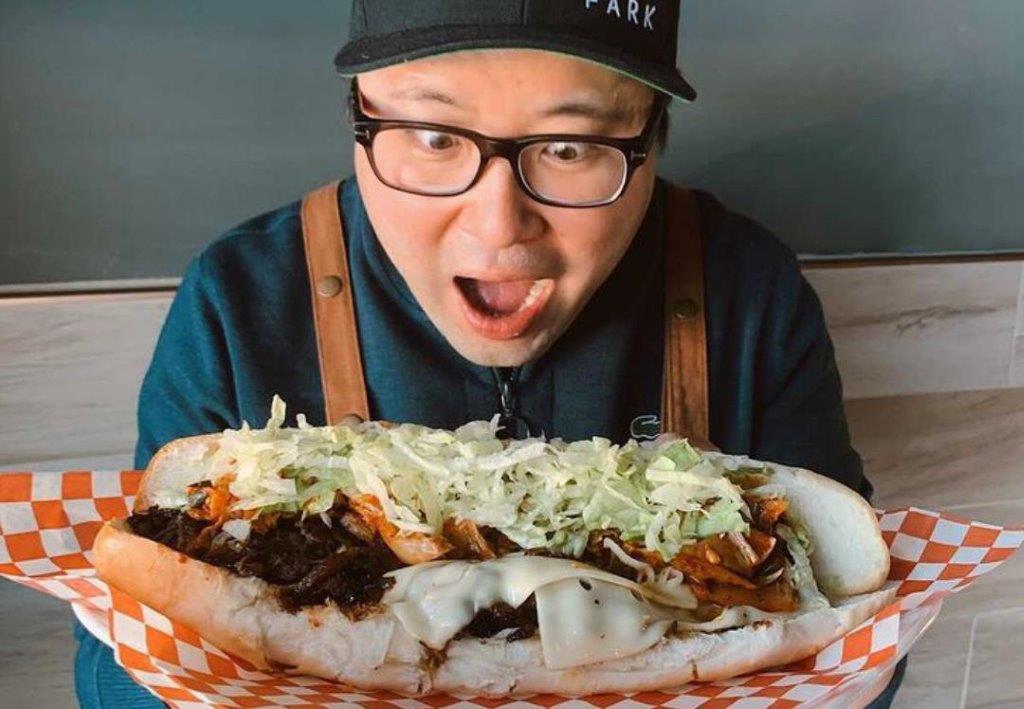
To support their culinary athletes, the CHEFS CANADA organisation brings together the very best chefs from one ocean to the other, to shine a spotlight on the country both here and abroad. In collaboration with its producers, its brands and its experts from the food industry, the Bocuse d'Or national culinary team raised the funds required for the contest and are promoting Canada as a culinary destination. Their Ambassad'Ors circle is an exclusive group of some of the country’s most renowned chefs.
Their values: unite the industry from one ocean to the other, pass on their expertise and knowledge to the upcoming generation, assist each other, define and promote Canadian cuisine together.
The Covid pandemic strikes
Around late 2019, Canada was one of the first countries to opt for a total lockdown during the health crisis. The situation became catastrophic for many restaurants, with high-end restaurants being the worst affected, but neighbourhood establishments were impacted too: pizzerias, cafés, bars, small family restaurants. Across the country, 10,000 restaurants closed for good within the space of a few months. In Quebec alone, 2,300 établissements, i.e., 10 % of the sector, closed their doors in early 2020. The Bocuse d'Or team training at a culinary school was quickly placed under lockdown. As the damage worsened, it became clear that measures would need to be taken to support the industry. Chefs Canada called upon its Ambassad’Ors to try to offer a hand to neighbourhood restaurants in Montreal thanks to the #ChefsAemporter campaign.
Make a difference together!
In early 2020, Sysco came up with the idea of doing something to support those most impacted. Among the actions taken: a partnership was established between the Ambassad'Ors from the Bocuse d'Or Canada team and the small restaurants that had struggled to generate takeaway sales. With national Chef Samuel Sirois (Bocuse d'Or 2023 finalist) heading things up, along with Sysco they paired "Ambassad'Ors" and their clients – small independent restaurant owners – to launch the operation #ChefsToGo in the spring, which would continue until 2021. Ten pairs were formed in Montreal.
The chef came up with a short-lived recipe inspired by the speciality of the restaurant in question to give it added-value. So, pizzas, burgers, sandwiches, home-made desserts etc. were upgraded. The recipes had to be suitable for takeaway.
Customers had the chance to sample dishes designed by famous chefs while financially supporting their favourite local restaurants. “Taste dishes from your favourite local restaurants revisited by the best chefs in Canada!”
The ten-week operation was a response to a one-off crisis situation, but it helped strengthen the spirit of solidarity between the different levels of restaurants and between the members of the Chefs Canada association, which has since continued to support the Bocuse d'Or Canada team.
 Founded on January 31 1980, the Chilean Gastronomy Association (ACHIGA) is the collective that monitors the interests and development of the Chilean gastronomic sector. Its goal, as a professional association, is to group together and represent the country’s gastronomic sector, to encourage its development and protect its common interests.
Founded on January 31 1980, the Chilean Gastronomy Association (ACHIGA) is the collective that monitors the interests and development of the Chilean gastronomic sector. Its goal, as a professional association, is to group together and represent the country’s gastronomic sector, to encourage its development and protect its common interests.
The Bocuse d'Or candidate is chosen after a contest organised by the ACHIGA every two years. The president of the team, Sebastián Salas, is also the president of Achiga’s gastronomic committee. The rest of the team consists in volunteers who are invited and then decide to join the project. Chef, commis chef, coach and promotions manager are part of the Chilean team, which operates under the wing of a team of renowned national and international chefs supporting training of the team for the technical and culinary aspects, the organisation, discipline, and transmission of knowledge, with a view to better representing Chile.
ACHIGA is actively involved in various fields. Here is a summary of its actions for 2022
For children
ACHIGA is the official representative of WorldChef in Chile. This is an international entity that brings together 110 gastronomic associations. Every year, the chefs who belong to WorldChef, in partnership with Nestlé, celebrate international chef’s day by sharing and passing on their culinary knowledge to children, to encourage a love and respect for the profession and promote healthy eating habits through recipes that are different, and fun. During the two years of the pandemic, this activity was suspended due to the public health situation. In 2022, this important event took place once again.
BOOT CAMPS – contributing to insertion
By partnering with the Foundation for Social Gastronomy, and with the support of the Coca Cola Foundation, ACHIGA actively participated in the Boot Camps project. This programme offers young adults in a precarious financial situation training in waitering and cooking, so that they can go on to work in the gastronomy sector. Thanks to this initiative, restaurants are turned into classrooms during their free time, to prepare those who take up the challenge of joining the programme. 200 people have already been trained, and 60% have gone on to work in the field.
Other actions
ACHIGA and Sernapesca have joined forces to promote the commercialisation and responsible consumption of seafood.
ACHIGA is involved in the professional insertion plan for migrants and refugees living in Chile, initiated by the Vicaria de Pastoral Social Caritas, and bringing together representatives of the State, the private sector, civilian society and international organisations.

54.2% of Colombia’s population is experiencing food insecurity, which means that one out of every two households is lacking Food and Nutrition Security (FNS). For that reason, it is crucial for the country to reconsider what has been done to date and progress in its involvement in areas such as food. Food insecurity is rising in Colombia, not because of a lack of resources or food, but because of the poverty of its populations, which leads to malnutrition. To ensure food safety in these regions, there is a need to recognise that food sovereignty in Amazonia and the Choco is intrinsically linked to the preservation of ways of life and management of the natural resources used by its peoples. If their crops and their traditions are not respected, for example, if they are not given the means to plant and produce their own food, they will start to eat cheap food to survive.
OUR PROJECT
This project helps enrich the knowledge of chefs, cooks and apprentices in Colombia and worldwide. Moreover, it is helping to save many unfamiliar ingredients with unique properties and different flavours. This research opens up the possibility of an inclusive form of cuisine, one that proposes indigenous products from the Amazonia region and Colombian Pacific. The goal is to supply Colombia and the rest of the world, using freeze-drying as a conservation method.
The Bocuse d'Or Colombia team, along with the SENA*, the entity in charge of the project, aim to increase the visibility of this research, by recognising the indigenous communities of Amazonia and those of African descent in the Pacific in an equitable manner. The project is headed up by Ricardo Malagon, a Colombian researcher in the gastronomy field and author of 5 very important books for the development of Colombian gastronomy.
LONG TERM
With the support of this prize, the team will open an academy to share and teach cooks how to use these new products and sensitise them about the sustainability and reasoned agriculture implemented by native peoples and those of African descent. Moreover, we will install solar panels where the indigenous communities of Amazonia live, with the goal of improving their quality of life. We are open to more projects within the academy.
*SENA is a national public institution providing educational training formation in Colombia, focused on the country’s economic, social and scientific development. It also invests in infrastructures to improve the social and technical development of the various regions of Colombia.
The jungle is our mother, because we live off it, the jungle is everything.
José Gregorio, San Martín from the Amacayacu community
 Research has demonstrated the drastic effects that solitude has on people’s lives and the strength of communities.
Research has demonstrated the drastic effects that solitude has on people’s lives and the strength of communities.
The non-profit association Les Petites Cantines creates spaces where it is easy and safe to offer other people a helping hand. The inhabitants of a neighbourhood are invited to cook together and meet around a lunch or dinner. Les Petites Cantines believe that what we eat, how we eat, and with whom, has a huge impact on our physical, mental and social health.
- Participatory model: clients are invited to cook and to help out when they can in the running of their cafeteria. A host (employee), in charge of the Cantine, supervises and ensures that the hygiene rules and instructions are observed.
- Free pricing: this enables guests to have access to good food and support the project regardless of their financial situation.
- The supplies take into account the quality and sustainability of the products cooked (organic food where possible, less packaging, less meat, more pulses, local producers...).
The organisation has developed an “impact measurement kit” which has succeeded in obtaining the following results:
- 70% of respondents say that since they discovered Les Petites Cantines, they have been eating fewer ready-made dishes and are cooking more at home.
- 82% claim to have discovered new products and healthy, simple and affordable recipes that they can make at home.
- 68% claim to want to go out more since they have been visiting Les Petites Cantines.
- 84% feel that they meet new people at Les Petites Cantines, different from the ones they usually spend time with (age, profession, religion, culture…).
On Tuesday, October 18, 2022, Team France Bocuse d'Or Candidate Naïs Pirollet, commis chef Cole Millard and project manager Tom Calazel
spent the day with the employees, volunteers and guests at a Cantine in Lyon, the city where it all started.
The goal was to:
- Share some practical cooking tips with the employees of the Petites Cantines kitchen
- Share with guests their experience on the Bocuse d'Or journey, and why the team feels concerned by the missions of Les Petites Cantines.
- Use the reputation for excellence of the team and its network to attract new clients and partners to Les Petites Cantines.
- Prepare a dinner with around ten amateur volunteers. A simple, enjoyable moment of mutual exchange with 50 people from different horizons and backgrounds.
The Bocuse d'Or France team wants to continue this exchange, assist the organisation with future events, and establish this kind of assistance as an ongoing thing. Thanks to its network of chefs, it might be possible to replicate this format in other cities where Les Petites Cantines need more visibility.
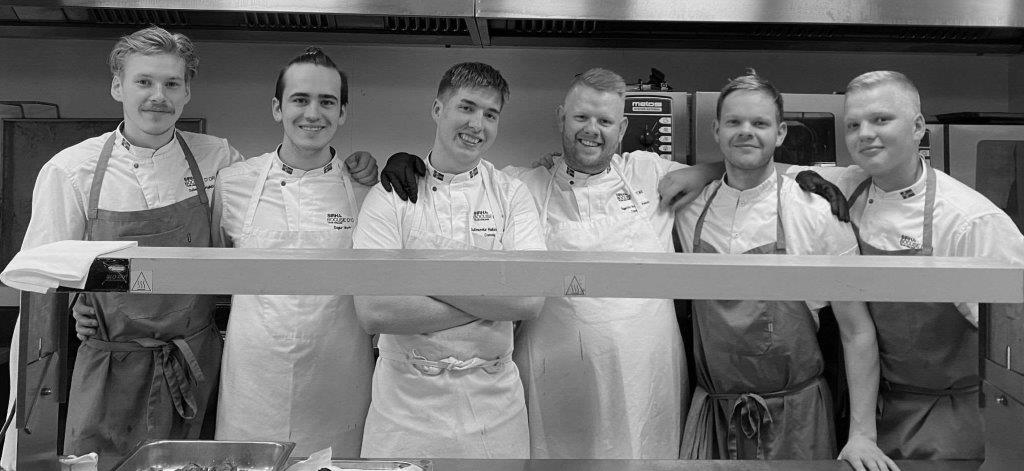
Treatment work at the Hlaðgerðarkot centre emphasises a multi-disciplinary and individual approach to increase the probability that patients will recover from drug addiction and be able to live drug-free. Educations, conferences, group work and individual interviews are all based on promoting self-care to strengthen the individual and increase his knowledge of the drug addiction problem. This particularly involves work on important aspects such as communication, identity, life skills and responsibility.
The organisation has several accommodation centres, in the form of apartments or rooms made available during treatment.
Weekly meetings in a friendly atmosphere with as many as 100 people (current and former patients, friends and family of those being treated etc.) Speakers, witnesses who have come to share their experience, their strength and their hope, take turns in speaking…
A place to eat
Samhjálp also manages the Kaffistofa Samhjálpar cafeteria, intended for those who are in need and don’t have the means to feed themselves: the homeless, the income poor, people suffering from a mental or physical illness. They all share the fact of having financial problems and many of them live in social exclusion. At Kaffistofa Samhjálpar, the cooking pot is always hot. As soon as the doors open, morning coffee and side dishes are available for customers. A hot meal is served at noon and hot dishes are available until closing time. On bank holidays and other days off, festive meals are also served.
Around 90,000 meals are served there every year.
A shop in solidarity
The Samhjálpar flea market is located in Ármúla 11, 108 Reykjavík.
It is open every weekday and operates through the donation of items that it then sells (clothing, household objects, decorative items, etc.) All the profits go to the Samhjálp organisation.
Samhjálpar Kótilettukvöld
Every year since 2006, a big annual fundraising evening has taken place in aid of Samhjálp, known as Chop Night. The menu is simple but greatly appreciated: delicious lamb chops served with side dishes. The evening features all the generous donors in Iceland and this year, on October 18 2022, the President of Iceland, Guðni Th. Jóhannesson, was also in attendance. Silent auctions and tombolas were also on the programme.
Sigurjón Bragi Geirsson, finalist candidate for the Bocuse d’Or 2023, and his team were intent on getting involved to create this meal for 140 guests.

Kritesh Halkory, finalist candidate at the Bocuse d'Or 2023, who comes from a modest background, was born in the small village of Caroline in the east of Mauritius. He joined the world of the restaurant trade in 2004, and once there his aspirations led him on the path of gastronomy. His passion for high standards and quality combined with his sharp sense of creativity led him to value and respect local products, while applying different modern cooking techniques.
His goal is to pass on his know-how and encourage young chefs to dream of becoming a great Chef themselves one day, embracing values and traditions, so that in their turn they can pass on their own experience and knowledge to future generations, while preserving the heritage of some of the greatest living Chefs, so that the culinary art can live on.
Assisting students at the Sir Gaetan Duval hotel school, where everything began for him. As the years have gone by, he has had the opportunity to meet and work with renowned chefs from across the world. These students will perhaps never have that opportunity, so passing on everything he knows is his mission, to inspire them and push them to surpass their own limits.
The Bocuse d'Or Mauritius Academy aims to support students at the Sir Gaetan Duval hotel and restaurant school who come from modest backgrounds and have limited resources. Providing them with support from the Bocuse d'Or Mauritius Academy will help them acquire knowledge and techniques on how to work with products, create and design their own dishes. Their ambition is to provide the essential tools and equality of chances to build solid bases and enable them to develop, while being able to access the support they need. That will contribute to a better socio-economic status through employment and they will evolve as a result of the skills acquired. These are our chefs of the future!
VALUES
Working with the new generation is important in highlighting the values conveyed by the Bocuse d'Or and developing them to ensure that students understand why these values are essential. In our rapidly changing world, we tend to take short-cuts to reach our goals, and that is to the detriment of our industry.
MISSION: Set up a culinary programme
- The Bocuse d'Or Mauritius Academy is proposing to create four modules for the students. Tackling one topic a month. The classes will be given by Kritesh, assisted by his commis chef, his coach and his president.
- Give students the possibility of working alongside renowned chefs during promotions and events.
- The students must work on 2 projects a year, 1 based on a producer/product and 1 focused on innovation.
- Giving grants to students who are unable to pay their school fees.
- One of the goals is also to ensure that students have the possibility of doing their internship abroad.

Chef Ruffo Ibarra, president of the Mexican Bocuse d'Or delegation, worked to support the organisation This is About Humanity (TIAH), launched in 2018, and assisted it in providing food aid, when it was partnering with chef Jose Andres/World Central Kitchen to feed many migrants on the US-Mexican border in Tijuana, Baja California. That involved supporting these vulnerable communities and alleviating the food insecurity crisis, a task undertaken by a collaboration between This is About Humanity and the International Community Foundation: annual fundraising dinners, recruitment of international-calibre chefs from across the world…
When World Central Kitchen was about to close its kitchen and TIAH and ICF had committed to fund a pilot one-year project so that the Fundacion Tijuana sin Hambre could manage the kitchen, chef Ruffo and his team continued to support this specific project. The food rescue kitchen has been operational since September 2022 and is now serving 2000 meals a day at 10 welcome centres.
As the food rescue kitchen operations were getting started, all the chefs in the team became further involved, using their fame to encourage more awareness-raising. They now organise a monthly community cooking class with Bocuse d'Or Mexico, which complements their continued support with fundraising.
This is About Humanity (TIAH) is a movement launched in 2018 whose initial mission of awareness-raising, fundraising and efforts to assist with the humanitarian crisis of separated/reunited families expanded during Covid to include the broadest definition of vulnerable communities. During the pandemic, TIAH successfully launched a series of innovative initiatives to secure cross-border matching grants along with companies and non-profit partners in Calibaja focused on help with Covid-19, PPE, education, mental health, the LGBTQI+ community and now, food insecurity. These efforts support more than 40 non-profit organisations on both sides of the border, from Tijuana to Los Angeles, with services provided in the above-mentioned areas, along with legal services, housing and other essential needs.
International Community Foundation (ICF) is a non-profit organisation whose mission is to work beyond borders to connect people, ideas and investments within the transformative power of the community. @ICFDN www.icfdn.org Fondation
Tijuana Sin Hambre: officially created during the pandemic, this is a non-profit organisation whose mission is to save lives by eliminating hunger through prevention, detection and treatment of malnutrition in Tijuana, Baja California, and Mexico.

Stiftelse Norsk Gastronomi/Norwegian Foundation for Gastronomy, is the structure behind the Bocuse d'Or Norway team. It is not content with organising selections or preparing for the competition. Its goal is also to be active in promoting a sustainable food culture, including operations focused on value, the reduction of food waste, smarter purchases, inspiring change... Given that food systems represent 1/3 of global CO2 emissions, the Norwegian Foundation for Gastronomy believes that:
- on an international scale, chefs are the guardians of thousands of meals
- the choices we make in our everyday purchases, cooking and communication have a huge impact
- we should all contribute to reducing waste and promoting good
- consequently, the Bocuse d'Or Norway Academy intends to promote values and practices that are part of the solution to a broken food system. This involves a variety of actions such as the Annual Sustainable Gastronomy Day.
- investing in child and youth nutrition is a fundamental investment if the world wants to achieve its sustainability goals by 2030.
The Norwegian Foundation for Gastronomy also launched ÅRETS KOKKSPIRE (Chefs of the Year Sprouts) as “A tool to inspire change and fight junk food”. This takes the form of a cooking contest for children aged 11 to 13, organised across the country.
ÅRETS KOKKSPIRE in short:
- Major digital recruitment campaign on YouTube and online games platforms
- Application through sending a personal recipe for skrei (Norwegian Arctic cod) and vegetables
- More than 100 applications received
- Selection of four candidates in four regions, total 16 children
- Four regional qualifying rounds in renowned Norwegian restaurants
- The four regional winners sent to the national grand finale
- Local ingredients of high quality sourced from sea and land
- At each stage in the competition, members of the jury were four well-known Norwegian chefs (mainly former winners or the Bocuse d'Or)
- Communications actions aimed at the press and social media to spread the inspiration.
There is an increasing need to address food and diet, at every stage in the life of children and adolescents. The resulting picture is troubling: too many children and young people by far are eating too much unhealthy food and too little healthy food.
Henrietta H. Fore, Executive Director, UNICEF
 Fill stomachs not garbage cans.
Fill stomachs not garbage cans.
As part of a partnership between students of the Auckland University of Technology (AUT), under the leadership of John Kelleher, president of the team and the Pacific Food Lab – Aotearoa (a local non-profit organisation), the members of the Bocuse d'Or New Zealand team prepare meals for people in need at Everybody Eats, a charity association that aims to put an end to food waste and poverty by preparing meals using food that would otherwise have gone to the landfill.
One third of all the food produced is wasted, whereas one out of six people in New Zealand is experiencing food insecurity. Moreover, New Zealand society has become much more fragmented; we don’t know our neighbours and a lot of people feel socially isolated. At Bocuse d'Or NZ, we think that one of the best ways to resolve these problems lies in using the power of sharing food together.
Positive for the students too
The AUT culinary team has had a working relationship with Everybody Eats since 2016. Culinary art students from AUT work alongside some of the best chefs in New Zealand in the kitchens of Everybody Eats. This is very beneficial in terms of professional skills, but also because it helps them realise the power chefs/cooks have to contribute to positive social, economic and environmental results, thus responding to the goals of sustainable development:
- No poverty;
- No hunger;
- Good health and wellness;
- Reducing inequality;
- Responsible consumption and production.
Everybody Eats is different from initiatives such as “soup kitchens” where packed meals are handed out to the needy. Every person who dines at Everybody Eats enjoys table service provided by volunteers with experience in waitering, who treat everyone with respect and dignity, regardless of their past or their situation. Guests pay what they can. If they don’t have the means to pay, they eat for free. For many people, it’s the only full, nutritious meal they will enjoy in the week.
On July 12, around 70% of the 266 guests were people in a situation of food insecurity and/or social isolation. By using rescued food, we have been able to redirect over 115 kg of food from waste.
On November 3 2022, we worked as volunteers at the Everybody Eats restaurant in the south of Auckland;
195 meals were served.
Around 100 kg of food was redirected from the landfill.
On December 7, we are organising an event with Pacific Food Lab - Aotearoa at AUT, and will be donating our sales to Everybody Eats to make their Christmas a bit sweeter.

For all those who work in the hotel-restaurant trade, there is great satisfaction to be drawn from bringing people together and delighting them with excellent cuisine and excellent service. At Bocuse d'Or UK, we are aware that, right now, many people in the UK are struggling to feed themselves, not to mention treating themselves to a high-end culinary experience. We are also aware that, in spite of the food shortages, there is still too much food waste leaving professional kitchens, shops and households. The cost of living crisis will affect everyone, but the poorest people will be the most impacted with a record number of people using food banks and also the warm banks recently opened – community buildings where families can escape for a few hours from homes that they don’t have the means to heat.
In the Bocuse d'Or UK team, few of us can remember life being so hard for so many people and that is why we chose to present the charity association FoodCycle for our social commitment.
About FoodCycle
By providing a safe and welcoming space where they can enjoy a free meal and company, FoodCycle brings together people from all horizons and a variety of backgrounds, thus improving mental well-being and strengthening community spirit. The organisation was launched in 2009 and now counts 54 sites across the country connecting communities to share food and conversation. Every week, thousands of volunteers transform surplus food into healthy, delicious meals for anyone in need. There are no eligibility criteria, no judgement in determining who can receive meals – everyone is welcome.
The main objectives of FoodCycle are to:
- Connect communities
- Help strengthen and build resilient communities by bringing people together around healthy, delicious meals.
- Improve the health and mental well-being of everyone by creating welcoming spaces enabling people from all horizons and backgrounds to have conversations together.
- Feed the hungry
- Improve nutrition and reduce hunger by cooking healthy meals for those who need them, which leads to a better knowledge of food and to changes in behaviour.
- Promote sustainability.
- Change attitudes to food and the impact society has on the environment by cooking with surplus ingredients.
- Inspire change
- Share the virtues of our community restaurant model and the voices of our clients to obtain greater support and accelerate our expansion, so that we can help more people and more communities.
Bocuse d'Or UK’s commitment to FoodCycle
As well as putting the spotlight on FoodCycle for the Social Commitment Award, Bocuse d'Or Team UK has also made the following commitments:
- Giving its surplus vegetables, herbs and spices to the local centre
- Doing volunteer work for at least one four-hour cooking slot at a FoodCycle centre between December and February.

With the fit4future project, the Cleven Foundation has been involved in the promotion of children’s health since 2005. The trilingual initiative supported by scientists has a lasting impact on children’s habits in the areas of exercise, nutrition and brain fitness (mental health). Thanks to the support of various partners, 800 Swiss schools, i.e. more than 160,000 primary school students, their parents and teachers, are benefitting for free from the programme, which includes educational media, exercise equipment and special events. One out of three primary schools in Switzerland benefits from fit4future today. Nestlé Switzerland, as the main partner in the fit4future initiative, is particularly focused on teaching children to enjoy cooking and thus sensitising them about eating a balanced diet, in a fun way. This is the context in which the partnership between Bocuse d’Or Switzerland and fit4future was launched – after all, who better to inspire children to cook than a chef with a passion who can share his passion with them?
The fit4future project is aimed at students, teachers and parents.
Beyond working directly with children, the foundation organises awareness-raising and training meetings for adults, and also publishes and distributes educational materials (recipe sheets, magazines, etc.), the goal being for children and parents to also be able to benefit from what they learn in their home setting.
The fit4future project is based on pillars aimed at nurturing:
- links between good nutrition and good health
- the importance of eating fruits and vegetables every day
- development of the 5 senses to eat well
- the need to move, exercise
A day with a chef
For many children, this is the first time they have ever met a chef! He introduces himself briefly and explains why he chose this profession, what he likes about it in particular, what his daily schedule looks like. The cook goes from one group to another, helping with the various tasks. The children learn to weigh, mix, peel, cut, etc. They also clean up and do the dishes. They talk about hygiene and the importance of eating fruits and vegetables. The various operations are the subject of a report that is used to evaluate impact.
All the members of the Bocuse d'Or Switzerland Academy participated in 10 awareness-raising classes on the subject of cooking and healthy eating. Dario Ranza, Heinz Rufibach, Thierry Fischer, Christoph Hunziker (finalist candidate for the Bocuse d'Or 2023), Peter Moser, Beat Weibel.
Initiated in 2016, the project was brought to a halt by the Covid crisis. In 2022: the projects started up again, but unfortunately without the team. Covid has left a big mark on Swiss gastronomy and there is a huge shortage of labour. Chefs in general and our members are now having to prioritise economic survival.
But we would like to be able to get involved again in fit4future!